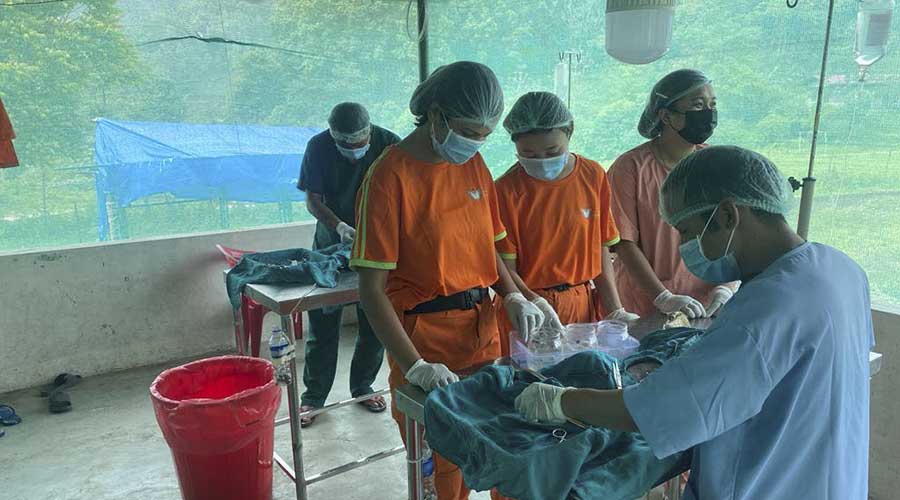
Trashi Yangtse and Haa can now expect a decrease in the stray dog population and rabies cases. The two districts have successfully achieved 100 per cent sterilisation of free-roaming dogs. More than 1800 free-roaming dogs were sterilised in the two districts. The sterilisation campaigns were initiated under the Nationwide Accelerated Dog Population Management and Rabies Control Programme.
Sterilisation programmes were rapidly carried out in these two districts until they achieved a hundred per cent sterilisation of all dogs.
 More than 1,100 dogs were sterilised in Trashi Yangtse, of which only about 20 were pet dogs. In addition, 370 pet dogs were microchipped. In microchipping, officials register the microchip number in your pet registration card. This is to feed details of pet dogs along with their owner’s information into the central pet registry database with a photo of the pet dog.
More than 1,100 dogs were sterilised in Trashi Yangtse, of which only about 20 were pet dogs. In addition, 370 pet dogs were microchipped. In microchipping, officials register the microchip number in your pet registration card. This is to feed details of pet dogs along with their owner’s information into the central pet registry database with a photo of the pet dog.
The sterilisation campaign in Trashi Yangtse started in April last year.
The Desuups along with the livestock officials carried out the campaigns.
And in Haa close to 800 free-roaming dogs were sterilised and nearly 700 pet dogs were microchipped and registered for digital identification.
The District Livestock Sector in collaboration with the District Administration and District Desuup coordinator gathered more than 120 Desuups and about 20 technical staff for the campaign.
The Department of Livestock started implementing Livestock Rules and Regulations 2022 to achieve 100 per cent dog sterilisation. The officials are penalising individuals who feed stray dogs in public places and roadsides, and pet owners failing to register their pet dogs.
In Paro, officials from the district veterinary hospital are visiting animal shelters, villages, gewogs and town areas to advocate before they start imposing penalties.
“People start adopting puppies as pets as they find them cute. But as they grow old, people disown them. First, they leave the pets outside and then feed them as per their convenience. In the meantime, the dogs go around looking for food. This is how dogs become stray animals leading to an increase in the population,” said Thinley Dorji, Assistant District Livestock Officer.
The Dog Population Control Flagship programme intends to achieve 100 per cent sterilisation of free-roaming dogs, register, and vaccinate all pet dogs, and control feral dogs by this year.
Kinzang Lhaden/Namgay Wangchuk
Edited by Phub Gyem









